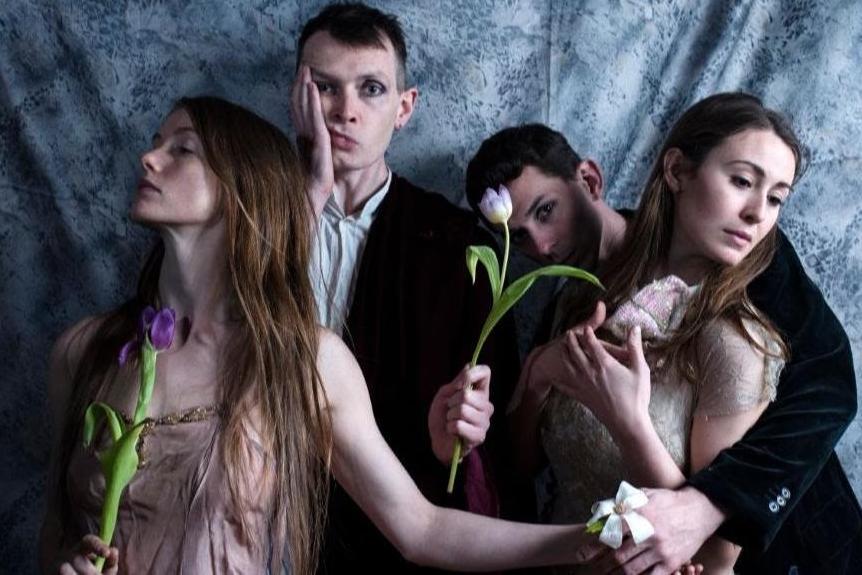
This new interpretation or reworking of Brecht’s early work by the Bristol based company, Impermanence received its world premiere at the Bristol Old Vic last night. Baal is the picaresque story concerning the history of a dissolute anti-hero, an outsider who through a particular genius gains a mythical cult status – something which no doubt attracted David Bowie to the role for the BBC production in 1982. In ancient Middle Eastern mythology ‘Baal’ is an important god of fertility, an aspect of which attribute we find in the compulsive womanising of the eponymous anti-hero.
This is something the many layered approach of joint directors, Roseanne Anderson and Josh Ben-Tovin, brings out successfully. The dance is inventive in its modes of expression; sensuous, dramatic and quirky by turns, and switching from the angular to the fluid with seamless ease, having the feel in some scenes of Bacchanalian revels, with the effect of being both uplifting and disturbing simultaneously. Scenes such as in the Karaoke Carousel also give us a taste of the clever wit which runs through the whole production and which bring together the various elements which raise the production out of the realms of the ordinary. Dance, song, music, lighting, video, costume and setting all combine here as in the later scene, Baal in the Bar, where we find him on the slide down to his final demise. Poet, musician, drinker and womaniser finds his (perhaps inevitable) end, like Scrooge, in an unloved grave.
The effect or feel of the production as a whole is a kind of ‘designer grotesque’, or perhaps ‘grotesque chic’ in which both wit and drama are comfortably accommodated. Everything feels precise, from the placing of the dancers (the two directors plus Sonya Cullingford and Alessandro Marzotto Levy) and musician (Robert Bentall) on the stage to the timings of the constant scene changes of Pam Tait’s settings which are in turn enhanced by Duncan Wood’s video design. Again the matching of the dancers’ movement to Robert Bentall’s expressive score has this characteristic precision. Bentall’s score is itself eclectic in its references to both folk and modern electronic music, the inclusion of tunes by Bowie and other material written for Baal and reworked for the current production. The tunes and incidental music have an organic feel which seems somehow sewn into the production and gives it a distinctive character – something helped by the curiously named nyckelharpa, an ancient Swedish stringed instrument which Bentall plays live on stage throughout the play.
The show manages to pull off the double hit of being both engrossing and entertaining with consummate artistry by all concerned. ★★★★☆ D S 26th April 2019

